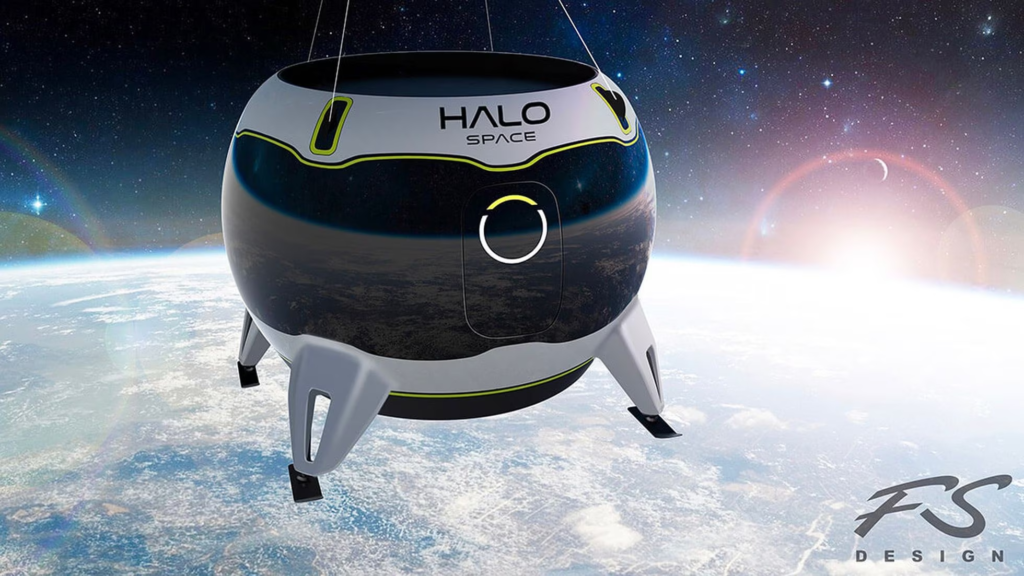What drives a person with all the comforts and luxuries on Earth to embark on a journey through cramped, inhospitable space? The answer lies in the evolving definition of luxury. Today, it’s about exclusivity and experiences, as stated by Carlos Díez de la Lastra, CEO of Les Roches, a leading hospitality management school. This week, Les Roches organized the international summit on space and underwater tourism, Sutus, in Marbella, where attendees discussed the future of space travel and adventure.
Space travel, once reserved for astronauts who underwent rigorous selection and training, is now accessible to multimillionaires willing to invest. Companies like SpaceX, Virgin Galactic, and Blue Origin have already facilitated space tourism. According to Díez, these travelers seek a unique experience, valuing the opportunity to witness Earth from an exclusive perspective.
Sam Scimemi, former director of the International Space Station at NASA, concurs, emphasizing that despite the lack of comforts and exposure to g-forces, the experience of being in space, viewing Earth from that vantage point, is profoundly exclusive and often a dream come true for many.
For those who desire a space-like view without leaving the atmosphere, Spanish company Halo Space is testing capsule flights, carrying nearly ten passengers to altitudes of 80 to 120 kilometers—high enough to witness the curvature of the Earth. Carlos Mira, the company’s CEO, believes this perspective transforms people, making them aware of their insignificance in the vastness of space. The flight experience, expected to be commercially available by late 2025, will last four to six hours and use green hydrogen for balloon propulsion, generated through solar panels. These trips won’t require extensive physical preparation but may necessitate a medical examination for the initial passengers. Mira notes that these experiences won’t come with astronomical price tags, with an estimated cost of €150,000 per person.
The launch of the first space hotel, currently in development by Above Space (formerly Orbital Assembly), remains uncertain due to market constraints. Tim Alatorre, the company’s COO, highlights that the journey to the hotel alone costs $60 million, and more spacecraft are needed. However, Above Space’s project includes artificial gravity, offering a hotel experience similar to Earth’s comforts. Alatorre envisions toilets, restaurants, and sports facilities. He predicts a shift toward more accessible space tourism in the coming decades, making it attainable for more than just multimillionaires.
Proteus Ocean Group, led by Fabien Cousteau, grandson of Jacques Cousteau, plans to open an international underwater station named Proteus, located off the coast of Curaçao. The station will sit 25 meters underwater and host up to 12 crew members, some of whom may be tourists. This unique experience will last five to seven days, and tourists will actively participate in station operations and scientific research. While pricing details are yet to be determined, Proteus aims to make underwater exploration accessible to a broader audience through an on-land museum with augmented reality displays.
For those seeking even greater thrills, Karlos Simón offers extreme shark diving experiences. Simón, who runs his travel agency, provides group adventures for 12 to 24 people at approximately €8,000 per person. He also offers personalized trips, where travelers have the boat to themselves and receive training to approach, touch, and feed sharks. These customized journeys start at €150,000 per person, attracting adventurers willing to pay for truly unique experiences.
As space and underwater tourism evolve, exclusive experiences are at the forefront of luxury travel. From space capsules to undersea research stations and thrilling shark encounters, these adventures offer a new definition of luxury: the privilege of extraordinary experiences. As these opportunities become more accessible, travelers are set to explore uncharted territories both on Earth and beyond.







